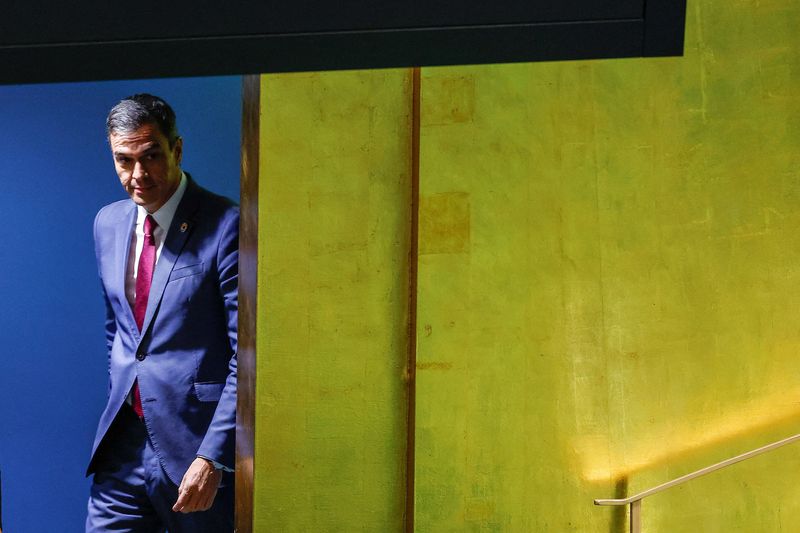MADRID (Reuters) - Spain's Socialists would win a new general election by a narrow margin and fall short of a parliamentary majority, beating the conservative People's Party (PP) that secured the most votes in July's inconclusive ballot, a survey showed on Thursday.
The country could face a repeat election in January if the candidates for prime minister from either of the two main parties fail to achieve sufficient majorities in the hung parliament to form a new government.
The first survey by the state-run Centre for Sociological Studies (CIS) since the July 23 election showed the Socialist Party (PSOE) with 33.5% of voting intentions, while the PP lagged behind at 31.7% - in a nearly exact reversal of the election result when the PP won 33.05% and PSOE 31.7%.
The government appoints the head of CIS. Most parties - except PSOE - and rival private pollsters have questioned the agency's neutrality and methodology.
Some of its polls in the run-up to the July ballot had already put the PSOE ahead, and although that did not happen, its pre-election poll on July 5 turned out to be more accurate than others in its estimates of the range of seats obtained by the two main parties.
The new poll gives third place to the left-wing alliance Sumar at 11.9% and fourth to the far-right Vox with 11.1%. In July, Vox came ahead of Sumar with 12.39% of the vote versus 12.31%, respectively.
The results of the survey of 10,104 citizens over the first two weeks of September have been released a week before PP leader Alberto Nunez Feijoo is set to try to secure the premiership in the lower house of parliament.
The sum of his party's 137 seats and Vox's 33 lawmakers, plus two expected votes from small regional parties from Navarre and the Canary Islands, would fall four votes short of the majority needed in the 350-seat chamber.

If Feijoo's bid were to fail, Socialist acting Prime Minister Pedro Sanchez would get the chance to form a left-wing coalition government with Sumar, backed by Catalan and Basque parties, some of which champion the independence of their regions from Madrid.
Should those efforts to woo the pro-independence parties prove to be unsuccessful, a repeat election would be held in mid-January.